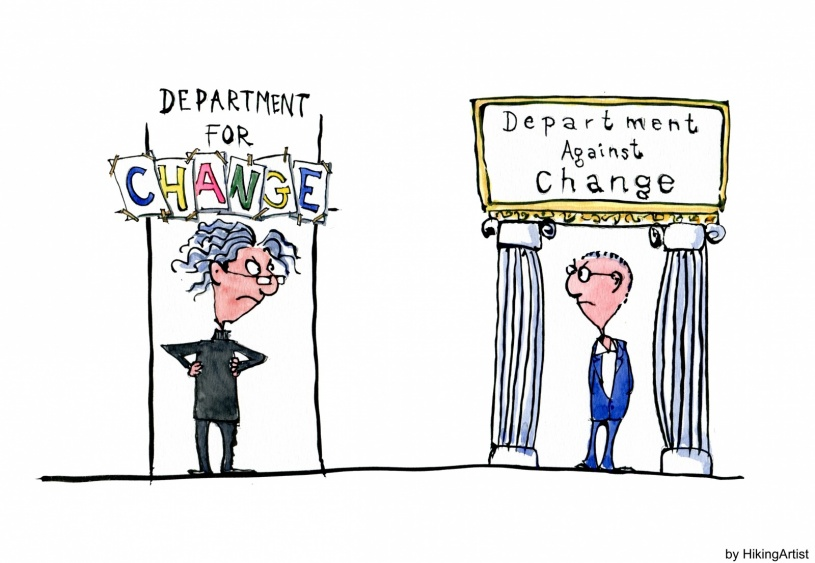I've just finishing reading Malcolm Gladwell's book, Outliers. One of his many fantastic insights were the key requirements he saw as necessary to remain fulfilled by your vocation. At the very least, exploring these requirements provides an opportunity for some introspection when you consider how your work measures up.
The three key requirements
Complexity
In order to be fulfilled about what you do, you need to be challenged. Without a challenge you have no sense of reward, accomplishment or fulfilment.
The example used in 'Outliers' is a choice between two life-long careers. You can be a parking station attendant, with an annual salary of $200,000. Or you can be an architect, with an annual salary of $150,000.
I think you would be hard pressed to find anyone who, for an extra $50,000 per annum, would consign themselves to a life of un-fulfilling work. To remain fulfilled and engaged, especially over longer time-frames, we need to be challenged by what we do.
Hopefully your work provides an environment where the challenges you face grow in line with your aptitude to face them.
Autonomy
Autonomy, I suspect for many people, is responsible for waning levels of job satisfaction. Businesses as they grow need to put in place structures and processes to streamline company management. Structured business models are designed to streamline how employees act and in doing so, homogenise what we can and cannot do. When this structure imposes upon how we engage our work, we quickly begin to feel un-fulfilled.
Things like strict dress codes or an inflexible approach to work arrangements are obvious direct impasses on our autonomy. As the importance of work place autonomy is now well documented, many of the world's largest companies are leaders in overcoming perceived direct impediments to individual freedoms. Think of the well renowned work from home schemes, relaxed dress codes and flexible work hours.
More subtle encroaches on your freedom like limiting how you approach solving work problems or tackle projects autonomously, overtime, sap away at job satisfaction. Notwithstanding that structure to some degree is important, an inability to think independently will, overtime, undermine our sense of purpose.
Accountability
The final element in being fulfilled by your work is the correlation between effort and reward. The more direct the relationship between your personal exertion and how you are rewarded, the greater the motivation you will have to thrive.
Keep in mind that not everyone's idea of reward is the same. Some people's idea of reward is financial, others are relationship, altruistic or legacy focussed, whilst some of us gain satisfaction from building tangible products or nurturing the vulnerable. The more directly you align your work with an output you find rewarding, the more you are innately motivated to persevere.
Real life examples
Consider the teacher that loves their job. They certainly have autonomy, being solely responsible for the class they teach. There is no shortage of complexity. Children of all ages can be difficult and juggling various personality types, whilst keeping everyone engaged, can be tremendously difficult. Is there a relationship between effort and reward for the teacher? If your motivations are purely financial, then perhaps not. But, if you are rewarded by seeing young minds maximise their potential, then there most certainly is a direct correlation between effort and reward. The harder you work as a teacher, the greater your ability to foster young minds.
Now, consider the high functioning management consultant. They are sent out to manage client briefs and deliver on business projects. The work itself has a great deal of complexity with the need to balance many stakeholder needs. Because of the jobs complexity, there is often a prescriptive framework on how to deliver client projects. So although seemingly complex, if projects become process driven, there can also be limited autonomy in how consultants engage with their work. Finally, the relationship between effort and reward for consultants can be opaque, especially when working in large corporates. The 'reward' side of the equation is based upon a subjective interpretation by more senior managers. Good managers aptly recognise effort and rewards it, bad managers may fail to see this or are complacent or themselves lazy. It is easy to see how the high functioning consultant becomes disillusioned with their work if they are prescriptively managed and opaquely rewarded.
Where do you stand
We often rationalise work as an enabler of fulfilment in other areas of life. When we do this we are able to reconcile a shortfall in one of the above attributes, although will likely find ourselves on cruise control at work.
Being adverse to change is the largest impediment to personal fulfilment. It's not always easy to find a calling that you love, especially when this involves taking risks or 'walking the path less travelled'.
If your work is lacking more than one of the above attributes then, apart from being unfulfilled, you are more than likely to be the person that presses snooze on their alarm clock more than once each morning. If this is the case then you need to reclaim meaning in your current role in one of the above areas. If you find yourself unable to do this, then there is a big world out there and it is waiting to be explored!



